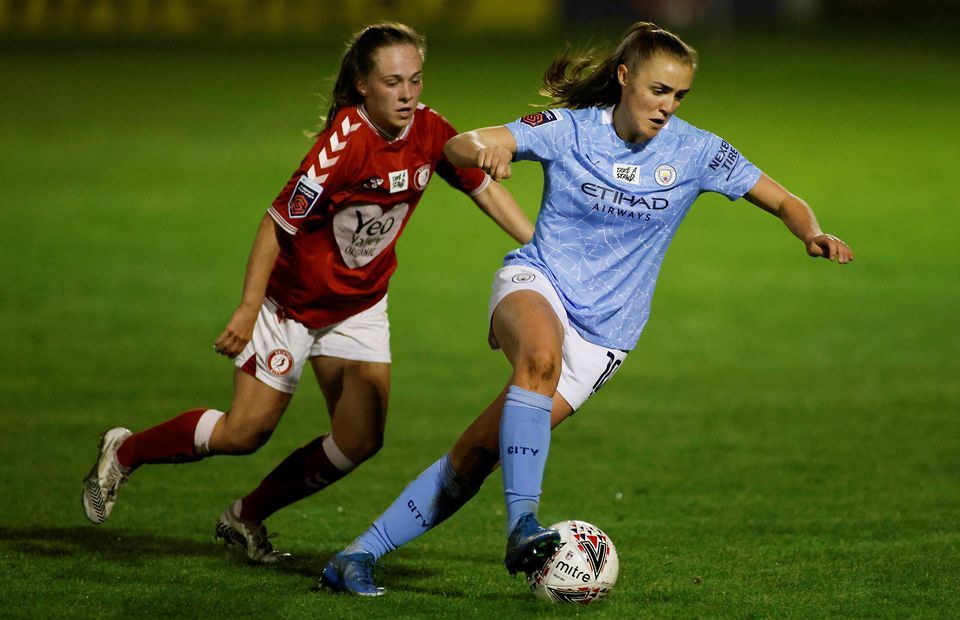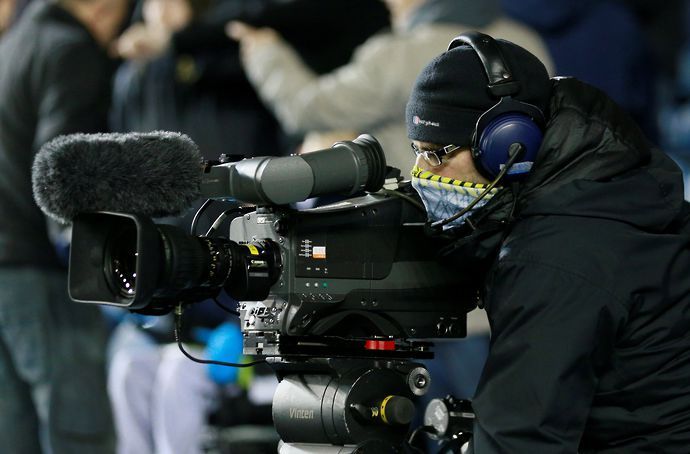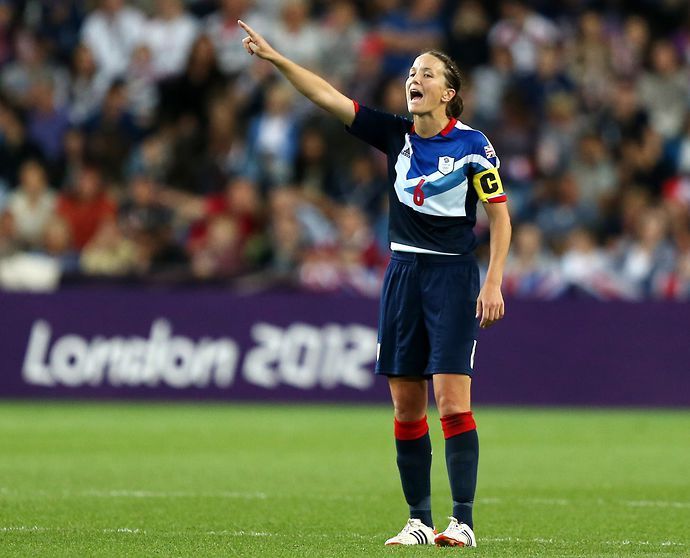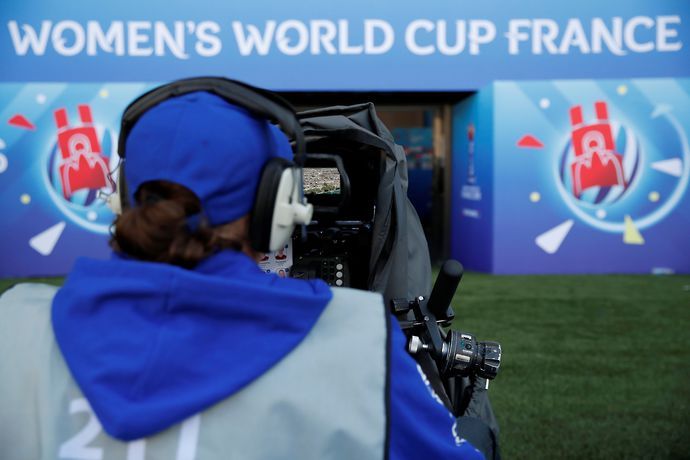After signing a landmark three-year agreement with the FA, Sky Sports and the BBC will broadcast the Women’s Super League from next season. The game-changing deal is a significant moment in the evolution of women’s football coverage.
The multi-million pound agreement with Sky Sports will see the broadcaster show up to 44 matches throughout the season, with a minimum of 35 screened across Sky Sports Main Event, Sky Sports Premier League and Sky Sports Football. Some matches will also be shown simultaneously on Sky Sports Mix and Sky One.
The BBC has committed to showcase 22 live games per season, with a minimum of 18 matches on BBC One and BBC Two. Games had previously been shown on BBC iPlayer and the Red Button. Remaining matches will be shown on the FA Player, meaning all 132 games in the WSL season will be broadcast live.
The deal marks the first time the broadcast rights to the WSL have been sold separately to the men’s game, with the 12 teams in the top tier of women’s football set to receive a proportion of the revenue. Part of the income will also be distributed to clubs in the Women’s Championship. WSL teams will receive 75 percent of the revenue share, while the remaining 25 percent will go to Championship sides.
How far has coverage of women’s football come?
Just 15 years ago, it was near impossible to watch your favourite women’s football team on television. This was in the days of the FA Women's Premier League National Division, which did not have a partnership with any broadcaster.
The best opportunity to watch women’s football live was usually a Women’s FA Cup final or an international football tournament, such as the European Championships or World Cup. These were occasionally shown online or on the BBC’s Red Button.
The launch of the WSL
This all began to change with the creation of the WSL in 2011. From that point onwards, BT Sport and the BBC broadcast a number of league matches. WSL coverage was given to these broadcasters for free, however, with BT Sport and the BBC paying the production costs. It was hoped this would ensure as many people were watching the WSL as possible in its early days.
The BBC began showing the Women’s Football Show in 2013 for those who missed the live action. The programme mixes highlights of WSL matches with expert analysis.
There was also an increase in the amount of international football available on TV. Following the success of the women’s football tournament at the London 2012 Olympic Games, the BBC announced it would broadcast all of England’s matches at the 2013 Euros on BBC Three. Both the semi-finals and final were played across BBC Three and BBC Two.
This coverage was stepped up for the 2015 FIFA Women’s World Cup. Every game, even those not featuring England, was broadcast live across BBC Two, BBC Three, BBC Red Button and online.
Channel 4 then took on the coverage for the 2017 Euros, airing all of England’s matches as well as selected others.
The creation of the FA Player
By the time the 2019 FIFA Women’s World Cup rolled around, women’s football was becoming impossible to ignore. The BBC committed again to broadcasting every match across the tournament. A record-breaking 28.1 million people tuned into the coverage, more than double the 12.4 million who watched the World Cup in 2015.
Back in the WSL, the FA Player was launched in time for the 2019/20 season. The platform, which is entirely free, shows every game in the WSL that is not already on TV. If that wasn’t enough, BT Sport announced it would increase the amount of matches it would air for the 2020/21 season.
Landmark deal with Sky Sports and BBC
This brings us to the new partnership between the FA, Sky Sports and the BBC, which will last until 2024.
Kelly Simmons, the FA’s director of the women’s professional game, is just as excited about the deal as fans across the country.
“We’re delighted to welcome Sky Sports and to extend our relationship with the BBC as our domestic broadcast partners from the 2021/22 season in what is a game-changing
agreement that will transform the Barclays FA Women’s Super League,” she said.
“Visibility and investment are such key factors in growing any women’s sport, and we are delighted that Sky Sports and the BBC have made a commitment to broadcast more live women’s football than we have ever seen before, while signifying its true value.”























